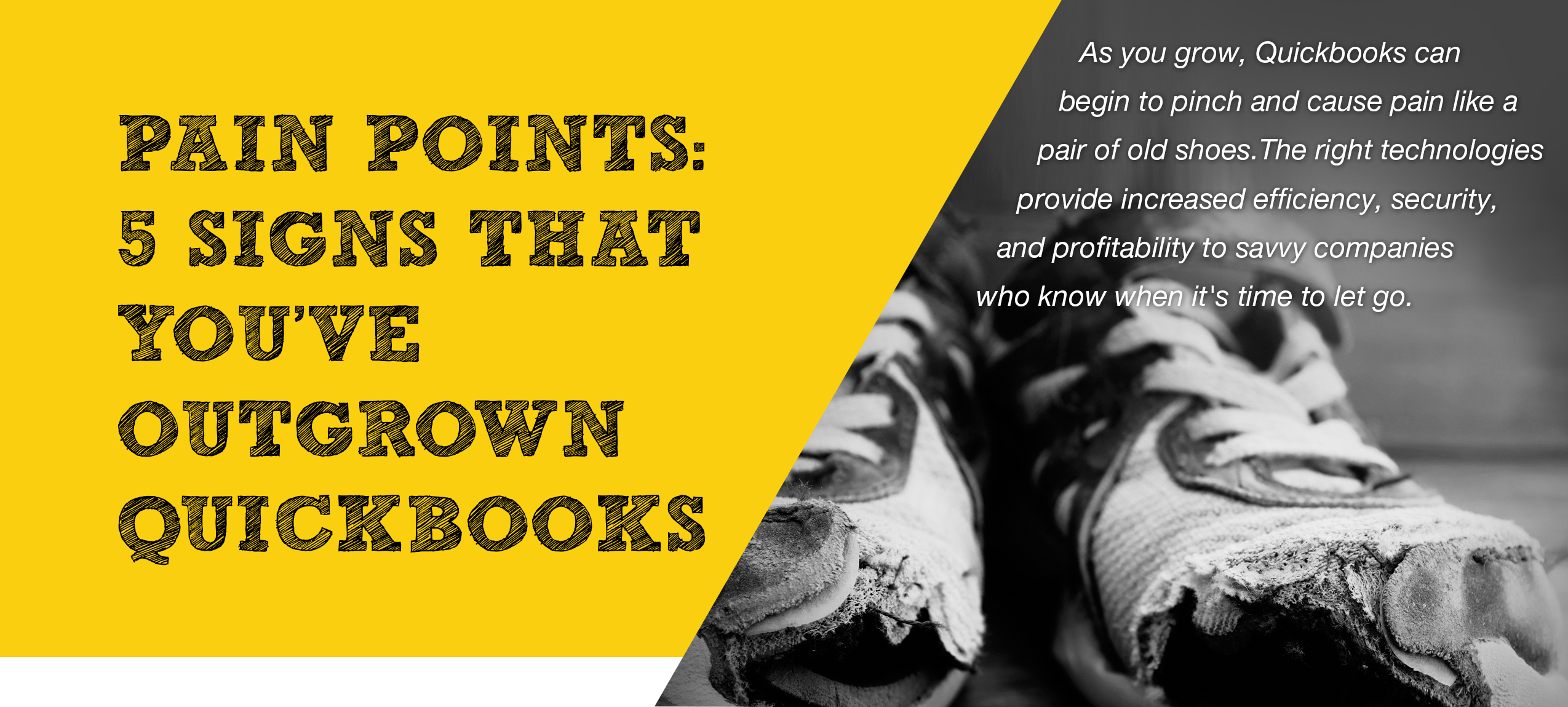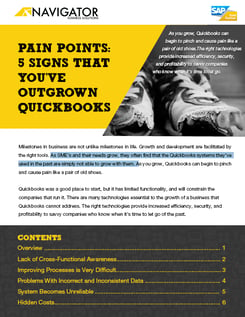
5 Reasons It's Time for You to Leave QuickBooks Behind
Countless small businesses rely on QuickBooks to manage their finances. This software has served your company well in the early stages of growth, but it may be showing signs of wear as you continue to expand.
So, when is the right time for you to upgrade to more advanced Enterprise Resource Planning (ERP) software? The short answer: when everyday accounting tasks become complicated for your team to perform. Here are 5 common moments that signal it's time for you to move on from QuickBooks.
1. When you're struggling to track your growing inventory
You've got an exciting problem on your hands. Product demand is out-pacing your ability to keep tabs on your current inventory. Maybe you're even adding a warehouse to meet your growing needs.
Inventory tracking is now more critical for you than ever. How can you know what you have in real time so that you fulfill customer orders fast? And what about tracking backorders? ERP software offers all this and more.
2. When your customer data causes QuickBooks to crash
Those mumblings of mutiny you're hearing in the accounting office are no joke. When file sizes get too large for QuickBooks, that causes instability and program crashes. This means lost work and lost time, which translates to a frustrated accounting team.
The more customer accounts you earn the more transactions you need to enter, causing file size to increase. With QuickBooks’ Enterprise tier, the file size limitation is 1.5 GB. To regain file size, you need to delete history.
When you’re hovering near max file size, you’ll notice problems like reports taking too long to load, random error messages, or all out crashing.
ERP software databases have more capacity and also support transaction archiving, which you aren’t able to do in QuickBooks.

3. When reporting has become a major challenge
Though QuickBooks handles reporting, these features aren’t robust or easy to use.
Does your team rely on 1 or 2 QuickBooks reporting gurus to generate the right reports for your company? Are people having to export data from QuickBooks and then manipulate it in Excel to produce the reports you need?
If so, it's time to upgrade to an ERP that makes creating and publishing reports, charts, and dashboards fast and easy for everyone.
4. When you need fully integrated CRM functionality
roughout the entire application. You can manage your customers everywhere in the system, rather than in a separate module.With QuickBooks there’s an add-on CRM solution but it’s not a complete integration and there isn’t any drill down capability.
5. When you need an easier way to maintain GAAP compliance
QuickBooks as standalone software is not GAAP compliant. You’ve likely struggled to build your financial statements using data from QuickBooks, a network of spreadsheets, and even other systems. GAAP compliance is either expected or mandatory for:
- Securing VC funding
- Getting bank loans
- Filing your taxes
- Your company’s valuation
- And more
When you’re financials are consistent, you’ll also get more reliable forecasts. Given how crucial this record-keeping is, why not use a single system that’s already GAAP compliant for managing your finances?
Summing it Up
When a company has gotten used to any software, it’s challenging and even a little painful at first to make a change. But what you’re gaining from ERP software—the scalability, flexibility, time savings, and increase in features and integrations—will provide huge returns on your new investment.
Is your company outgrowing Quickbooks? Register to attend an overview demo on SAP's Business One platform, geared for companies just like yours. Click here.

